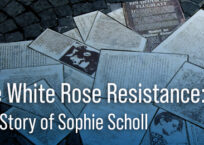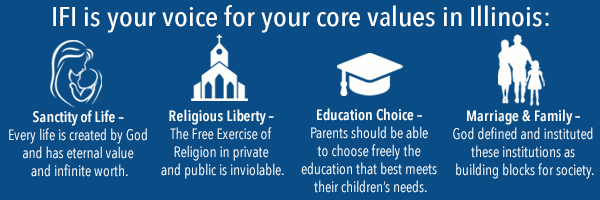
This past October, The Atlantic published an article that is as alarming as its title sounds: “The Elite College Students Who Can’t Read Books.”
According to the article’s author, Rose Horowitch, today’s high school experience simply does not prepare students to handle the amount of classic literature that elite college students once routinely undertook.
Horowitch chronicles anecdote after anecdote of college professors who have discovered they cannot expect their students to read as much as they used to—not, at least, if they want them to pay attention, digest the material, or even simply complete their assignments.
(Admittedly, this article has received criticism for relying on anecdotes instead of actual statistical evidence about American high schools. Yet, one critic notes that, despite this weakness, Horowitch’s underlying thesis is still plausible; American education is notorious for lowering its expectations of students. Thus, it is entirely unsurprising to see that trend translating into poor college performance.)
All in all, then, what happened to the American educational system? Why are students at the nation’s most prestigious universities—schools such as Columbia, Princeton, and UVA—increasingly unable to handle more than small doses of great Western literature?
Some commentators mention how phones and social media drain students’ attention; others describe the numerous ways that the internet allows one to cheat. Yet, I believe there is another factor that is more fundamental than these recent technological issues.
Fundamentally, it’s the question of education’s purpose: What is school even for?
Consider the experience of Columbia professor Joseph Howley, one of the professors who realized he must adjust with the times and trim the reading list for his students. As The Atlantic explains,
“Students today are far more concerned about their job prospects than they were in the past. Every year, they tell Howley that, despite enjoying what they learned in Lit[erature] Hum[anities], they plan to instead get a degree in something more useful for their career.”
It seems that, when students have their minds set on getting a good job after college, they prioritize the career-building aspects of education and do not prioritize studies that they view as less useful.
The National Review echoes this sentiment and applies it to more than just the students themselves. According to their follow-up to The Atlantic piece, the problem with high school students is really a symptom of a broader cultural problem.
As the National Review puts it, when elite students struggle to read books, it…
“implicates not just a few schools or school systems but an entire educational culture, along with families and parenting practices that, albeit well meaning, have trained students in a narrow, instrumentalist view of education.”
They have a fair point. If education simply exists to help students land a good career later in life, then the Iliad seems relatively unhelpful, irrelevant, and—in the grand scheme of things—simply unimportant.
However, is this all there is to education? Should education be primarily focused on setting a student up for a good career later? While this idea is popular in today’s educational climate, it sharply contrasts with the views of historical Christian educators. Throughout history, notable Christian teachers have recognized a much higher calling to education. Take, for example, Augustine of Hippo (354–430 A.D.):
“So in this mortal life we are like travellers away from our Lord . . . we must use this world . . . in order to discern ‘the invisible attributes of God, which are understood through what has been made’ or, in other words, to derive eternal and spiritual value from corporeal and temporal things.” (On Christian Teaching, I.9, trans. R.P.H. Green)
In saying this, Augustine refuses to let education be merely focused on the things of this world. Rather, he encourages us to discern truths about God from the things which He has made.
Similarly, Hugh of St. Victor (1096–1141 A.D.), a prominent medieval educator, expresses a similarly God-centered goal for education:
“This, then, is what the arts are concerned with . . . to restore within us the divine likeness . . . [t]he more we are conformed to the divine nature, the more do we possess Wisdom.” (Didascalicon, II.1, trans. Jerome Taylor)
As Hugh sees it, education is about more than just learning facts. It is about learning wisdom, and when we begin to achieve wisdom, we begin to reflect God Himself.
Furthermore, the Reformation-era educator John Comenius (1592–1670) elaborates on the details of a God-centered education—he argues that education ought to produce not only knowledge of the world, but also character and devotion to God. As he sees it:
“In these three things is situated the whole excellence of man, for they alone are the foundation of the present and of the future life. . . . It follows, therefore, that we advance towards our ultimate end in proportion as we pursue Learning, Virtue, and Piety in this world . . . all else are side channels, hindrances, or ornamentations.” (The Great Didactic, IV.6, 9, trans. M. W. Keatinge)
Ultimately, these historical Christian voices provide a much richer perspective on what education’s true purpose is.
Education transcends merely learning facts or preparing oneself for a good job later in life. While those are indeed superficial purposes for education and important in some sense, education’s more fundamental purposes are to grow in one’s character and to know God more.
God teaches us about Himself in His Word and His world, so studying nature and Scripture with Him in mind draws us closer to Him.
Granted, this vision of education—that it shapes the person, not just the resume—is very hard to sell in today’s resume-driven world. Sometimes it just takes an honest glance at history to see that, in a different time period, people were recognizing truths that we have since forgotten.
Now, today’s educational community will immediately ask, “But how is a student going to use any of this?” As I’ve heard it said, though, if you ask the wrong questions, you will get the wrong answers. Perhaps it’s not quite correct to ask how a student will “use” his education.
Perhaps it’s a better question to ask what kind of person the student will become.
Let’s continue this discussion, and also tie it back to our current crisis in higher literature education in Part Two.


























